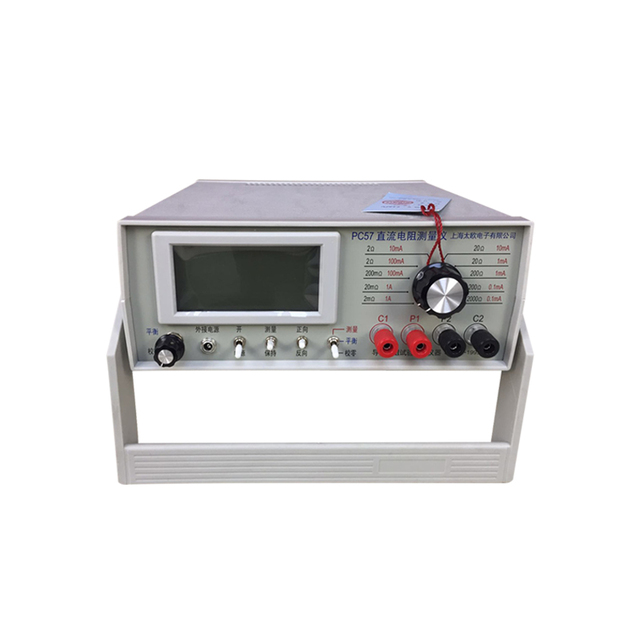computer control electronic universal testing machine
Computer Control Electronic Universal Testing Machine Revolutionizing Material Testing
In the world of material science and engineering, the ability to accurately measure the mechanical properties of materials is critical. This is where the computer control electronic universal testing machine (UTM) comes into play. The UTM is an advanced piece of equipment that allows for the precise testing of various materials under different conditions, providing essential data that informs product development, quality control, and research.
The universal testing machine is characterized by its ability to perform a variety of mechanical tests, such as tensile, compressive, and flexural tests. Its versatility stems from its capability to test both metals and non-metals, including polymers, composites, and ceramics. With the integration of computer control, these machines have evolved significantly, enhancing their accuracy and user-friendliness.
One of the primary advantages of a computer-controlled electronic UTM is the precision it offers. Traditional testing machines often relied on manual adjustments and mechanical readouts, which could introduce errors and inconsistencies in the data collected. In contrast, modern UTMs utilize computer software to control the load application and measurement process. This automation ensures that the tests are conducted uniformly and repeatably, producing reliable results.
The digital interface of computer-controlled UTMs allows users to set parameters for the test easily. Operators can input specifications such as the rate of loading, the type of stress to be applied, and even the conditions under which the test will take place. This level of customization is crucial in research environments, where it is often necessary to replicate specific conditions or to explore the properties of new materials.
computer control electronic universal testing machine

The data acquisition capabilities of these machines are also enhanced by computer control. Modern UTMs feature advanced sensors and data collection systems that relay real-time information to the user interface. This capability allows for immediate feedback during testing, enabling operators to observe the material's response to stress as it happens. Furthermore, the collected data can be easily saved for future analysis, providing a comprehensive database for research and development.
A significant feature of computer-controlled electronic UTMs is their ability to perform complex testing procedures. For instance, some machines can conduct cyclic loading tests, which simulate the conditions materials experience in real-world applications. This feature is particularly important for studying fatigue and durability, as it helps engineers predict how materials will behave over time under repeated stress. Similarly, advanced machines can perform dynamic mechanical analysis (DMA), providing insights into how materials respond to varying frequencies and temperatures.
In industries such as aerospace, automotive, and construction, the implications of having accurate and comprehensive material testing are profound. Engineers rely on the results from UTMs when designing components that must meet stringent safety and performance standards. The ability to accurately characterize material properties ensures that products not only perform as intended but also comply with regulatory requirements.
Moreover, as sustainability becomes increasingly important, the role of computer-controlled UTMs in the development of new materials cannot be overstated. These machines aid in the innovation of eco-friendly materials, such as biodegradable plastics and recycled composites, by providing essential data that drives their design and application.
In conclusion, the computer control electronic universal testing machine represents a significant advancement in material testing technology. Its precision, versatility, and user-friendly interface make it an indispensable tool in various industries. As technology continues to evolve, it is likely that we will see further enhancements to the capabilities of UTMs, paving the way for even more advanced material characterization methodologies. This ultimately will contribute to the development of better, safer, and more sustainable products, thus shaping the future of engineering and manufacturing.
-
The Role of Tensile Force Testers in Quality Control and Material Science
NewsAug.01,2025
-
Maintenance and Safety Tips for Aging Ovens
NewsAug.01,2025
-
Density Balance in Forensic Science
NewsAug.01,2025
-
Advanced Optical Measurement Technologies
NewsAug.01,2025
-
A Buyer’s Guide to Tensile Test Machines
NewsAug.01,2025
-
Why the Conductor Resistance Constant Temperature Measurement Machine Redefines Precision
NewsJun.20,2025
 Copyright © 2025 Hebei Fangyuan Instrument & Equipment Co.,Ltd. All Rights Reserved. Sitemap | Privacy Policy
Copyright © 2025 Hebei Fangyuan Instrument & Equipment Co.,Ltd. All Rights Reserved. Sitemap | Privacy Policy
